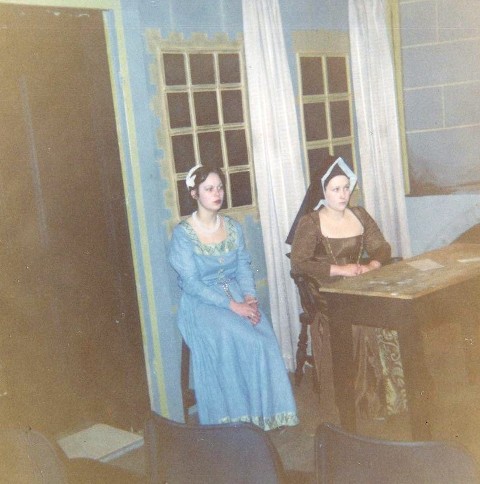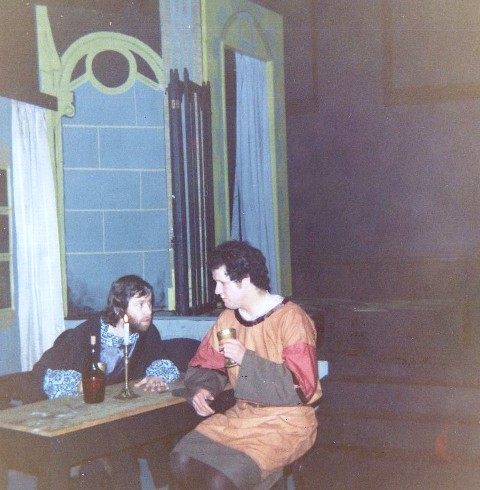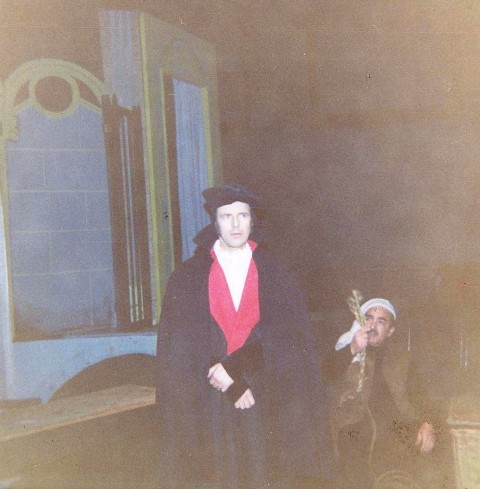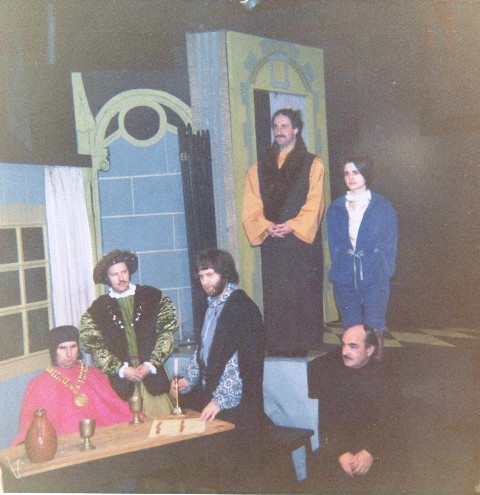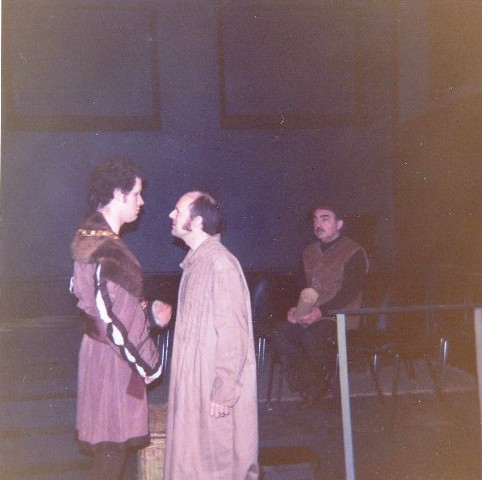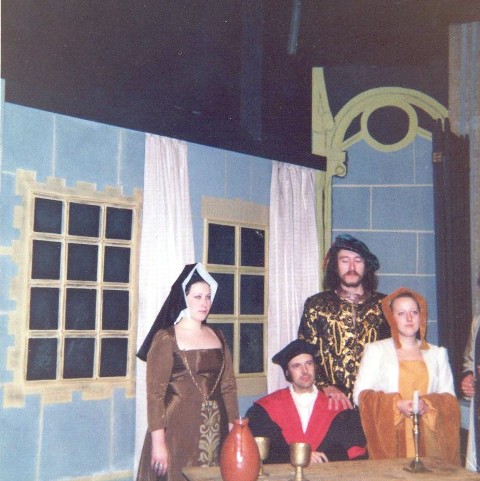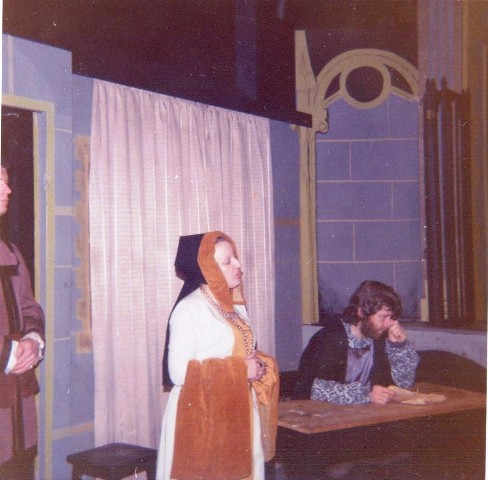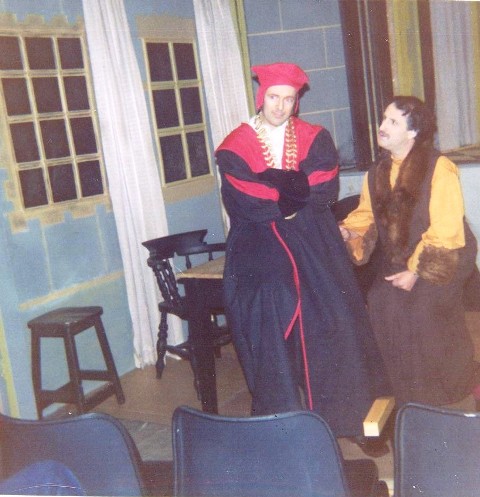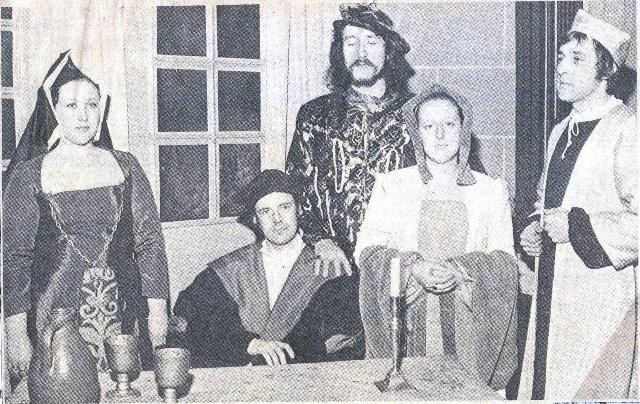The Bench Production
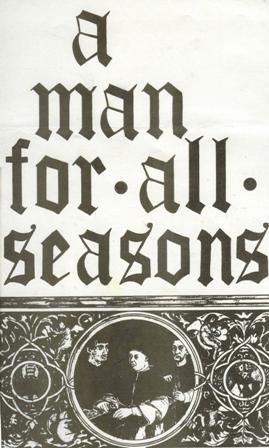
This play was staged under Bench Theatre's original company name of Theatre Union, at their theatre in West Street. It was actually the building in West Street, Havant where most of the Company's early plays were staged, which was called the Bench Theatre (after its prior use as a magistrates' court). The company's name was changed gradually by word of mouth and general usage between the years 1973 - 1977 when reviewers, and then members themselves, gradually stopped referring to Theatre Union and started calling the company of players 'Bench Theatre'. The new Company name of Bench Theatre was adopted in to all the promotional literature after they moved from the old theatre (which had been their home for nearly 7 years) in to the Old Town Hall building in East Street.
Cast
| The Common Man | David Spackman |
| Thomas More | Tony Starr |
| Richard Rich | Peter Duncan |
| The Duke | Ian Nelson |
| Alice More | Sharon Rose |
| Margaret More | Jill Morris |
| The Cardinal | John Scadding |
| Thomas Cranwell | David Lings |
| The Ambassador | Derek Cusdin |
| His Attendant | Katriona McHugh |
| William Roper | Spokey Wheeler |
| The King | Peter Corrigan |
| A woman | Hazel Rhymes |
| The Archbishop | Brian Montefiore |
Crew
| Director | Tim Mahoney |
| Stage Manager | Peter Holding |
| Assistant Stage Manager | Brian Sweatman |
| Assistant Stage Manager | William Palmer |
| Posters and Set | David Lings |
| Costumes | Jenny Jones |
| Music and Sound Effects | David Spackman |
| Makeup | Ingrid Caddy |
| Makeup | Benita Oakley |
| Makeup | Julie Morgan |
Director's Notes
The background to Henry VIII's quarrel with the church and Thomas More's involvement is too well-known to require repetition in these notes. More's victory in death, indeed the whole conception of total individual sacrifice is something we have found great trouble in understanding. More is reputed to have joked with his executioner, and, when Cranmer doubts Thomas' entry into Paradise, he says "God will not refuse one who is so blithe to go to Him". I think it is this absolute conviction of heavenly reward for right behaviour and the conviction of a dreadful hell awaiting all heretics that we have found so difficult to fully accept and therefore to portray. Many theatre-goers have seen Bolt's play, either in the film version or on stage; we hope that you'll be happy with our presentation.
Tim Mahoney
